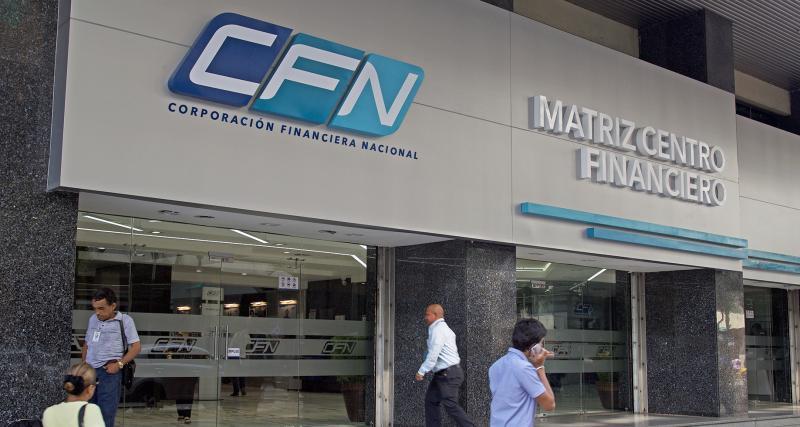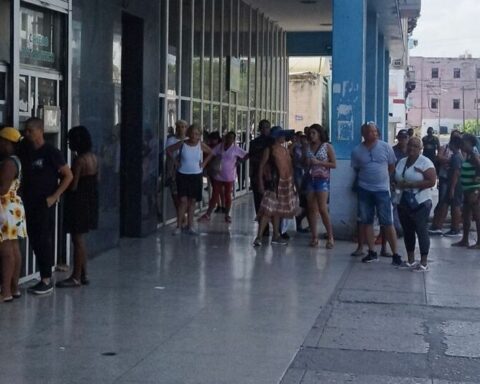Between 2014 and 2019, unsupported loans were delivered, which now add up to more than 4,700 million in uncollectible and overdue portfolio.
The National Finance Corporation (CFN) It is another example of how political management, and not technical, can cause great damage to a public entity. The credits granted discretionally and without guarantees have now been transformed into a uncollectible portfolio and expired that produces increasing expenses.
Those expenses, through the so-called provisions, went from $120 million to $418 million in the last three years. The situation, in addition to reducing the assets of the institution and generating losseshas also caused public resources to serve to finance a small group of beneficiaries.
The main keys to the crisis in this state bank are detailed below:
one.-In 2021, the CFN closed with a economic loss of $240 million. This loss is a direct consequence of the increasing costs related to a briefcase delivered in the midst of multiple irregularities and political calculations
2.- Currently, out of a total of $704 million briefcase with problems, $286 million have already been definitively declared as uncollectible (All administrative and legal instances have been exhausted). On the other hand, $418 million are overdue and a way to recover at least part of it is being sought. The delinquency level on the CFN it is almost 10 times higher than in the country’s private banks.
3.- There are 1,185 coercive lawsuits underway for $390 million from the Past due portfolio. 48% of that judicialized amount, that is, $190 million, corresponds to processes of payment that began in the current Government from June 2021 to date.
4.- Between 2014 and 2019 there was a feast of credits without technical support or the minimum of guarantees. Between the irregularities found are the lack of documentation that justifies the financial flows of the clients (indicator to set payment quotas); null verification of accumulated debts of the applicants, allocation of funds to profiles that did not meet the basic requirements, and even legal reports that endorsed the delivery of financing to companies with shareholders linked to cases of alleged fraud.
5.-80% of the credits poorly awarded, and which are now part of the $418 million Past due portfoliois concentrated in the manufacturing industry ($165 million) and agriculture ($163 million).
6.- One of the emblematic cases of the political management of the loans of the CFN it is the one of the $75 million given to the new administrators of the La Clementina hacienda; after the businessman Álvaro Noboa was expropriated, under the argument that debts with the SRI should be collected. That new administration, with political ties to the government of Rafael Correa, made the production of the hacienda fall almost to zero, which in its good times generated millions of boxes of bananas a year.
7.- In the case of the portfolio completely bad of $286 million, 57% is also concentrated in the manufacturing industry and agriculture; an additional 15% in the accommodation and food services sector and another 14% in construction.
8.- Among the multiple problems that the authorities have encountered to recover briefcase is that it is intended to pay with the delivery of goods that are difficult to resell or get any use from them. In addition, especially in Guayaquil, debtors obtain protection actions from the judicial system to stop coercive processes.
9.- The authorities of the CFN they are being strongly questioned because they have revealed the figures of embezzlement to the institution, but they do not reveal the names of the beneficiaries of the uncollectible and overdue loans. The reason, according to Iván Andrade, president of the institution, is that article 353 of the Monetary and Financial Code establishes banking secrecy over deposits, collections and credits of the financial system.
10.- Another irregularity detected is that the credits delivered went to few hands. Of the total of briefcase of $1,500 million, 80% benefited 500 clients, which do not represent even a quarter of CFN users.
12.- The challenge until 2023 is to consolidate the merger with Banecuador, to recover as much as possible of the briefcase with problems, and all the costs of past mismanagement are made transparent.
13.- Control bodies such as the Superintendency of Banks have not issued any type of sanctions on the management of briefcase on the CFN.
14.- Those directly responsible for the uncollectible and overdue loans They are María Soledad Barrera, president of the institution between 2014 and 2016; Santiago León, president for six months in 2017; and Juan Carlos Jácome, head of the CFN between 2018 and 2019.
15.- Between 2014 and 2019, not only were credits delivered without support, but the institution’s balance sheets were also made up to make it appear that they had good profits and optimal financial figures. That is one of the conclusions of a Deloitte audit report. (JS)








